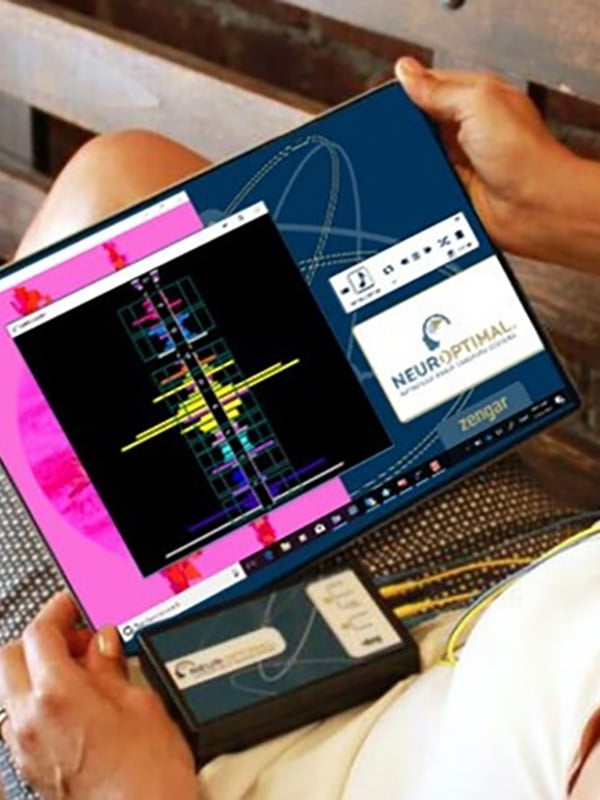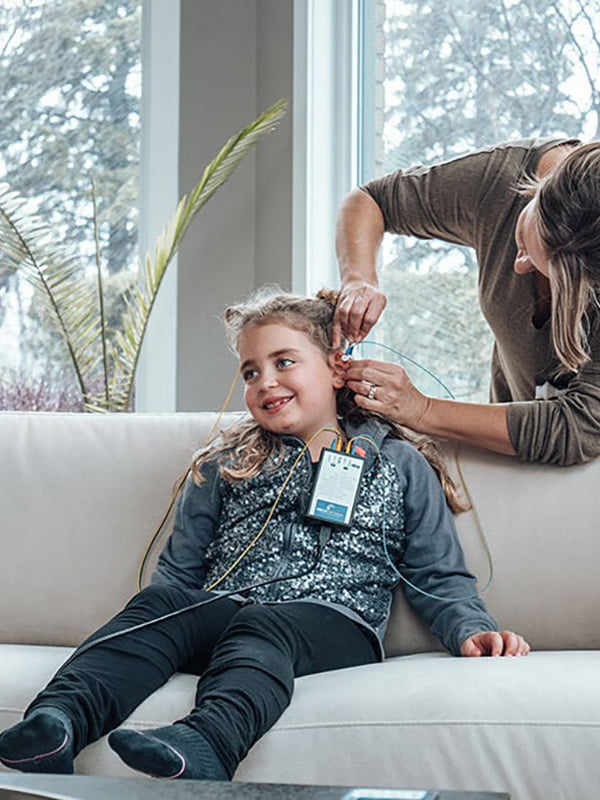Norwich, Norfolk and International with Online.
Calm, confident, in control. The real you.
Neurofeedback for ADHD
Hypnotherapy, when combined with Neurofeedback training like NeurOptimal, can be a powerful tool for managing ADHD, as it harnesses the power of the subconscious mind to promote focus and self-regulation, while the neurofeedback provides real-time insights into brain activity, helping to train the brain towards optimal functioning and potentially reducing ADHD symptoms
Why Hypnotherapy and NeurOptimal for ADHD?
The Evolution of ADHD: From Misunderstanding to Modern Insight
Once upon a time, a child fidgeting incessantly or an adult’s mind wandering during a conversation might have been dismissed as mere indiscipline or laziness. Today, we recognize these as potential signs of Attention-Deficit/Hyperactivity Disorder (ADHD). Let’s journey through the history and evolving understanding of ADHD.
From Shadows to Spotlight
The narrative of ADHD began long before it got its official name. In the late 18th century, Sir Alexander Crichton hinted at symptoms resembling ADHD. However, the real spotlight shone on the condition in 1902 when British pediatrician Sir George Frederic Still spoke of children with “an abnormal defect of moral control”. Before ADHD’s formal recognition, individuals were often mislabeled and misunderstood, facing societal ostracization and punitive measures.
The Medicinal Magic Wand
Fast forward to today, and we have pharmaceutical interventions that have transformed lives. Medications like Ritalin and Adderall have proven effective in enhancing focus and reducing impulsivity. They act swiftly, often showing results within an hour. But, like all magic wands, they come with a caveat. Side effects can range from insomnia to increased heart rate. There’s also the looming shadow of misuse, especially among the youth. And while they alleviate symptoms, they aren’t a cure.
The Ripple Effect Through Ages
Historically, the lack of ADHD understanding meant many faced academic and occupational hurdles, often accompanied by low self-esteem and mental health challenges. Today, with increased awareness, many with ADHD thrive in various fields. Yet, challenges persist, especially in spaces that don’t cater to the unique needs of those with ADHD.
A Glimpse Inside the ADHD Brain
Modern science has allowed us a peek into the intricate workings of the ADHD brain. Neuroimaging reveals that certain brain regions, especially those governing attention and impulse control, might be smaller in those with ADHD. The brain activity patterns differ, particularly in the prefrontal cortex. And it’s not just about structure; it’s chemical too. Imbalances in neurotransmitters like dopamine play a pivotal role, which is why medications targeting these are often prescribed.
From being relegated to the shadows of misunderstanding, ADHD has emerged into the light of scientific scrutiny and societal awareness. As we continue to unravel its mysteries, one thing is clear: understanding and support can transform lives. Whether you know someone with ADHD or are simply curious, remember that knowledge is the first step to empathy.

NeurOptimal and Hypnotherapy for ADHD
All ADHD sessions will now be carried out using NeurOptimal Neurofeedback. Upon request, hypnotherapy can also be integrated alongside NeurOptimal to offer a comprehensive therapeutic approach. Neuroptimal is a state-of-the-art neurofeedback therapy designed to help individuals achieve optimal brain function. This therapy monitors brainwave activity through sensors placed on the scalp, which then relay auditory or visual cues to the individual. These cues assist the brain in learning to recalibrate and self-correct, leading to improvements in mental, emotional, and physical health.
The therapy is non-invasive and does not involve drugs or medications. Instead, it facilitates the brain in establishing new neural connections and pathways using positive reinforcement and gentle feedback. By guiding the brain to recognize when it’s operating at peak performance, Neuroptimal encourages the brain to consistently adopt these beneficial patterns, enhancing mood, cognition, and overall health.
During a Neuroptimal session, participants sit relaxed in a chair with sensors affixed to their scalp. The therapist activates the neurofeedback program, tracking the individual’s brainwave activity and delivering real-time feedback via audio or visual signals. These signals correspond to specific brainwave patterns associated with positive mental and emotional states.
As the sessions continue, the brain becomes proficient at identifying and sustaining these optimal patterns, leading to lasting improvements in mood, cognition, and overall health. When combined with hypnotherapy, this approach can further address and resolve behavioral issues, offering a holistic solution to challenges faced by those with ADHD. The blend of NeurOptimal and hypnotherapy provides a powerful toolset for individuals, enabling them to tackle a broad spectrum of conditions, including anxiety, depression, PTSD, ADHD, and more. This combined approach offers individuals a holistic and non-invasive method to enhance their mental and emotional well-being.
This therapy is non-invasive and does not rely on drugs or medications. Instead, it aids the brain in forming new neural connections and pathways using positive reinforcement and gentle feedback. By teaching the brain to identify when it’s operating at its best, Neuroptimal encourages the brain to sustain these beneficial patterns, resulting in better mood, cognition, and overall health.
During a Neuroptimal session, individuals relax in a chair with sensors attached to their scalp. The therapist starts the neurofeedback program, observing the person’s brainwave activity and offering real-time feedback through audio or visual signals. These signals align with specific brainwave activity patterns linked to positive mental and emotional states.
As sessions progress, the brain becomes adept at recognizing and upholding these optimal activity patterns, leading to enduring enhancements in mood, cognition, and overall health. Neuroptimal has proven to be a safe and effective therapy method for various conditions, including anxiety, depression, PTSD, and ADHD. It’s an ideal choice for those looking to boost their mental and emotional health in a holistic and non-invasive manner.
The therapy is designed to be non-invasive, and it does not use any drugs or medications. Instead, it works by helping the brain create new neural connections and pathways through the use of positive reinforcement and gentle feedback. By training the brain to recognize when it is functioning optimally, Neuroptimal encourages the brain to maintain these healthy patterns, leading to improved mood, cognition, and overall well-being.
During a Neuroptimal session, an individual sits comfortably in a chair while wearing the sensors on their scalp. The therapist then initiates the neurofeedback program and monitors the individual’s brainwave activity, providing real-time feedback to the individual in the form of audio or visual signals. These signals are designed to correspond to specific patterns of brainwave activity that have been associated with positive mental and emotional states.
Over time, the brain learns to recognize and maintain these optimal patterns of activity, resulting in long-term improvements in mood, cognition, and overall well-being. Neuroptimal is a safe and effective form of therapy that has been used to treat a wide range of conditions, including anxiety, depression, PTSD, ADHD, and substance abuse disorders. It is an excellent option for individuals who want to improve their mental and emotional well-being in a holistic and non-invasive way.


Neuroptimal: A Powerful Tool in ADHD Treatment
Brain Function: ADHD often disrupts the brain’s natural balance and functionality. Neuroptimal helps restore neural pathways and promotes healthy brainwave patterns. By training the brain to function optimally, it enhances the brain’s ability to self-regulate and helps address the root causes of ADHD symptoms.
Improving Focus and Attention: Neuroptimal trains the brain to become more attentive and focused, enabling individuals to cope better with distractions and impulsivity. By regulating brain activity, it can help alleviate the intensity and frequency of these challenges commonly faced by those with ADHD.
Enhancing Emotional Well-being: ADHD often coexists with emotional imbalances such as anxiety, depression, and stress. Neuroptimal’s neurofeedback sessions can help individuals achieve a more balanced emotional state, promoting mental well-being and reducing the reliance on external stimuli to cope with emotions.
Increasing Self-Awareness and Self-Control: Managing ADHD requires developing self-awareness and self-control. Neuroptimal enhances both of these essential skills by providing individuals with real-time feedback on their brainwave patterns. This feedback gives insights into their current mental states and enables them to gradually gain better control over their thoughts, emotions, and behaviors.
Improving Sleep Patterns: Sleep disturbances are common among individuals with ADHD. Neuroptimal helps promote healthier sleep patterns by training the brain to achieve more balanced and peaceful states. Improved sleep quality aids in overall well-being and reduces ADHD-related sleep issues.
Supporting Long-Term Management: Neuroptimal’s effectiveness extends beyond the initial stages of ADHD management. Regular neurofeedback sessions can be an ongoing support system, helping individuals maintain focus and emotional balance by providing continuous brain training and emotional regulation.
ADHD Treatment Options
NeurOptimal Taster
Two Sessions
£140
for course
- A 2-session introduction to Neuroptimal offers a quick dive into advanced brain training. Experience immediate calming effects, understand the process, and gauge its potential benefits, all within a short commitment. It's the perfect start for those curious about what Neuroptimal can offer.
NeurOptimal Office
Plan 1
£1195
for course
- 6 Therapy Sessions
- 12 NeurOptimal Sessions in Office
NeurOptimal Home
Plan 2
£695
for course
- Hire of NeurOptimal for 6 Weeks
- Unlimited at home sessions for maximum benefit to ADHD symptoms
Who Should do it?
Neurofeedback, specifically NeuroOptimal, combined with hypnotherapy for ADHD management, aids individuals dealing with attention deficits, impulsiveness, hyperactivity, ADHD-related challenges, and stress-induced distractibility. By utilizing the benefits of both NeuroOptimal and hypnotherapy, it fosters better focus, improved behavioral control, and brain training. This integrated approach supports enhanced relationships, productivity, and overall quality of life. Do you:
- Often find it challenging to maintain focus
- Encounter difficulties in managing impulsive behaviors
- Struggle with organizing tasks or following through on commitments
- Face challenges in regulating your emotions
- Tend to be easily distracted or forgetful
- Desire to improve your relationships and daily functioning
- Seek a more structured and balanced life

What our clients say
Testimonials
For years I’ve suffered with excess sweating when in any situation where the focus is on me or I’m nervous, like giving a presentation or being around new people. This was really affecting my job as my job involved a lot of presentations and meeting new people! My mum has had hypnosis before so I thought I would give it a try. I don’t know how Paul did it but after one session I felt more confident and was able to lead a normal life without excess sweating, he even stuck my hand to my leg which I thought was brilliant!
Matt
Norwich
I’ve suffered total hair loss through alopecia, I’ve had no more than three hairs on my body at one point since it began three years ago . . .
Paul had hair growing back on my head and face within 2 days of our first session… Three sessions and four weeks later. I’ve got at least a hundred fine white hairs on my head and around 30 scattered elsewhere. It seems to be growing again . .
I also feel STRONGER and BETTER . . . I can never thank Paul enough
Matthew
Ipswich
Hi Paul, I hope you’re keeping well. I just wanted to get in touch to let you know that following on from the successes during your alopecia hypnotherapy trial, my hair continued to grow and has now fully recovered. For the first time in 11 years I have my curls back and I look like me again! My wigs are back in their box and I honestly can’t thank you enough for setting me on the path to getting all of this fixed. All the best.
Jane
Norwich
What you will achieve
Here are some of the achievements you are likely to achieve by working with me to help resolve your problems
Enhanced Focus and Reduced Distractions
NeuroOptimal and hypnotherapy synergize to sharpen concentration and minimize external distractions, paving the way for improved productivity.
Control Impulses and Modify Behavior
By leveraging the power of brain balancing and therapeutic techniques, individuals can temper impulsivity and reshape detrimental habits into positive actions.
Stabilize Emotions and Build Resilience
Utilizing the combined strengths of NeuroOptimal and hypnotherapy, one can achieve emotional stability, fostering resilience against unpredictable mood shifts.
Boosted Confidence and Self-Worth
With the support of both methods, individuals can rebuild their self-esteem, navigating ADHD challenges with renewed confidence and belief in their abilities.
Manage Anxiety and Break Bad Habits
Harnessing the techniques of brain balancing and hypnotherapy, one can effectively alleviate feelings of overwhelm, anxiety, and transition away from negative routines.
Empowerment and Personal Growth
A balanced brain and therapeutic insights provide a deeper understanding of ADHD, encouraging individuals to adopt new strategies and embrace transformative personal growth.
Commonly Asked Questions about Hypnotherapy
Hypnotherapy is a therapeutic approach that utilizes hypnosis to access the subconscious mind, allowing for positive changes in thoughts, behaviors, and emotions. It is a safe and effective method of addressing various issues and achieving personal growth.
Yes, hypnotherapy is a safe practice when conducted by a trained and certified hypnotherapist. Clients are always in control and cannot be made to do anything against their will. The therapist guides the client into a relaxed state where positive suggestions and therapy can take place.
Hypnotherapy can help with a wide range of issues, including addiction, anxiety, weight management, smoking cessation, phobias, and improving confidence or motivation. It can also be used for relaxation, stress management, and enhancing performance in various areas of life.
The duration of a hypnotherapy session can vary depending on the therapist and the specific needs of the client. Typically, sessions range from 60 to 90 minutes, although some might be shorter or longer. It is important to discuss session length and frequency with your hypnotherapist.
The number of sessions required will depend on the nature of the issue being addressed, the individual client, and their goals. Some clients may see positive results in just a few sessions, while others might benefit from ongoing therapy. Your hypnotherapist will work with you to create a personalized treatment plan.
Yes, almost everyone can be hypnotized to some degree. It is a natural state of mind that we enter multiple times a day, like when we daydream or become engrossed in a book or movie. However, the level of depth achieved during hypnotherapy may vary from person to person
During hypnosis, clients typically experience a deep state of relaxation and/or heightened focus. It is often described as a pleasant and calm sensation, similar to being absorbed in a daydream or meditative state. Clients remain aware of their surroundings and are always in control of their thoughts and actions.
Yes, it is common for clients to remember the majority, if not all, of what happens during a hypnotherapy session. While the experience may feel dream-like, hypnosis is not a state of unconsciousness. You will be able to recall the suggestions and insights provided by the therapist.
No, you do not need to believe in hypnosis for it to be effective. Hypnotherapy can benefit individuals regardless of their beliefs or skepticism. The therapy is grounded in scientific principles and works by accessing the subconscious mind to make positive changes.
When choosing a hypnotherapist, it is important to consider their qualifications, experience, and areas of expertise. Look for certifications from reputable hypnosis organizations and ask about their training and background. Additionally, a good fit between you and the therapist is crucial, so trust your instincts and feel comfortable in their presence.
